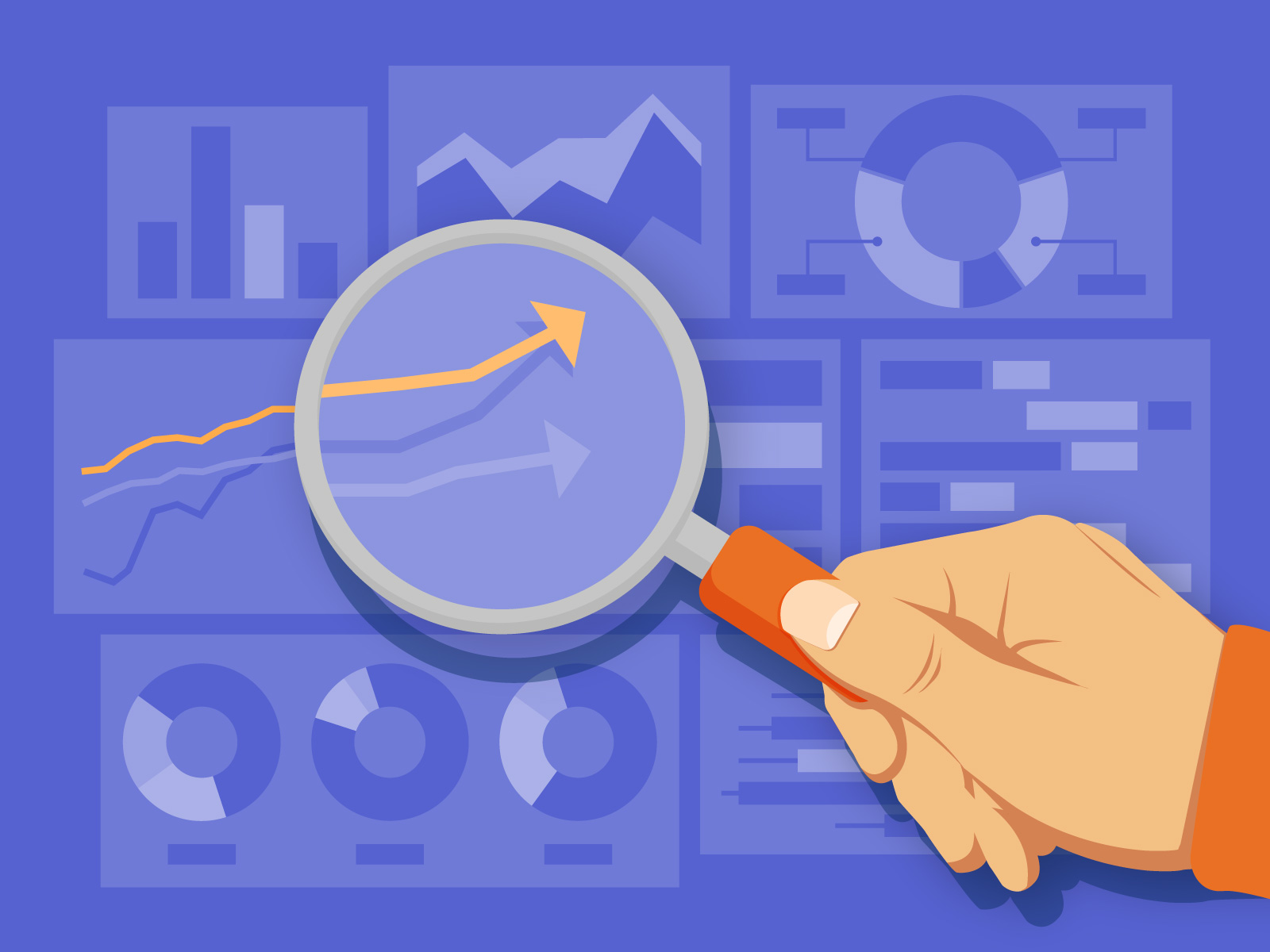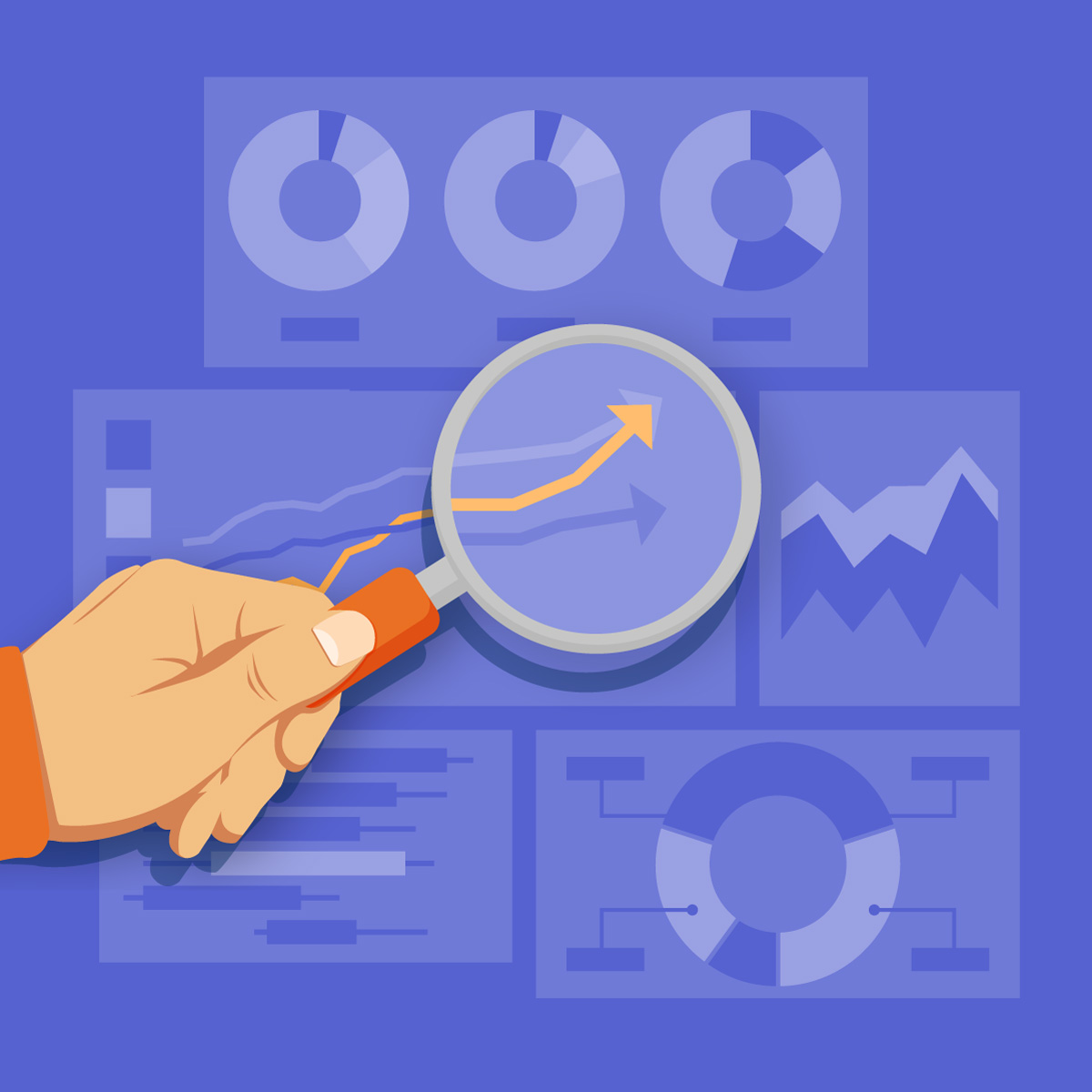Keeping your investments on course
When world events create short-term volatility in the markets, it's more important than ever to maintain a focus on your long-term investment plan and objectives. Don't lose sight of your financial goals, avoid making rash decisions, and stay the course.
But that can be easier said than done. So our writers, Nicola Brown and Ethan Rotberg, describe a few of the most common areas where investors can sometimes run into trouble, along with key recommendations on what to do instead.
Consider it a refresher course, as you tune out the noise, and tune into some reassuring words of financial wisdom.
Six investment dos and don’ts
1. Buying high, selling low
It seems so simple: purchase shares of a stock at its lowest value and sell it at its highest. Easy money! Unfortunately, it's just a little more complicated than that — and anxious investors watching the markets rise or fall may unintentionally buy high or sell low instead.
The market is a lot less predictable than new investors may believe. It's why Warren Buffet — the investing icon nicknamed the “Oracle of Omaha" — is credited with saying the stock market is “a device for transferring money from the impatient to the patient."
What to do instead: For investors, especially young investors, it's about time in the market, rather than timing the market. Setting up an automatic savings program, to contribute a set amount of money to your portfolio regularly, is one way to ensure you'll ride the highs while weathering the lows — by taking your emotions out of the equation.
“The only way to capture what the market has to offer is to be there through the ups and downs," says Rona Birenbaum, Certified Financial Planner ® and founder of Caring for Clients. “You can't benefit from the long-term growth of the market if you're not there at all times to participate in it. I don't know anybody that's been successful in going in and out to avoid the downturns."
—Ethan Rotberg
2. Putting your eggs in one basket
It can be tempting to put all your eggs in a particularly hot investment basket, such as real estate, especially given how much it dominates the news cycle. But that would make your investment income overly dependent on the fortunes of a single asset class.
What to do instead: While real estate is often seen as a stable investment, it is susceptible to rising interest rates, which leads to higher mortgage payments and can, in turn, slow down the growth in home prices, says Jonathan Simeone, Montreal-based investment advisor at Assante Capital Management.
“In any case, it is always wise to invest in different asset classes (real estate, stocks, bonds, preferred shares, etc.), as they often behave differently over time. The asset class that performs the best one year may not be the best performer in the following years."
If you're not confident about picking your own stocks, selecting a mutual fund or ETF index fund is another way to diversify your holdings.
—Nicola Brown
Ready to start investing?
We’ve got simple options that keep your money working for you in the short and long term.
3. Investing first, paying bills later
It's easy to dream of hitting it big in the stock market. But does that mean you should ignore your pesky debt payments? Probably not. When you're carrying expensive debt, it can be hard to get ahead – no matter what the returns on your investments might be.
Jason Heath, Managing Director of Objective Financial Partners, says he's “seen cases of people paying 18 per cent interest on their credit card," while they also have money invested in a Tax-Free Savings Account (TFSA) that could be better used to pay off that high-interest debt.
What to do instead: Heath encourages investors to make paying your bills a top priority and make investing secondary to that. Try to keep track of your monthly expenses, along with your income, to get a better picture of how well you're managing your money.
Birenbaum also points out that every effort should be made to improve your credit score, and that includes paying your credit card bills on time. “One day you're going to be wanting the support of a bank to lend you money for something that's super important."
—E.R.
4. Taking the YOLO (You Only Live Once) approach
Considering the year(s) we've had, it's reasonable to want to treat ourselves. But before I splurge on a speedboat (#yolo), I'm sure cooler heads would suggest seeking investment-savvy ways to live in the moment.
What to do instead: “As science is helping us live longer, outliving our savings has become more and more of a reality for some," Simeone says. “A good, detailed financial plan can really help you understand what to expect, and most importantly, how much you can afford to spend in your golden years.
“It's also important to update your long-term financial plan frequently, as many financial and personal variables can change over time."
—N.B.
5. Getting financial advice from social media
The videos are fun, but are all those so-called “experts" really giving you sound advice?
There are a few problems with taking your investment advice from social media, says Heath.
“Sometimes these people are not very well versed in the areas they're giving advice," he says. “Sometimes they have conflicts of interest that would cause them to recommend certain things."
In addition, social media influencers don't know anything about your personal goals. They may offer tips that work well for certain people in specific situations, but they may not be the best strategy for you.
What to do instead: Don't take investment advice from those who don't know your personal finance situation. “It's not actionable, well-grounded information," Birenbaum says. Instead, she recommends choosing your information sources carefully, and finding as many independent voices as possible to broaden your own financial literacy.
—E.R.
6. Planning on the fly
Let's get this out of the way: saving money without a goal is still a good thing to do. Even if you don't have a clear-cut target, you can save anyway.
But novice investors and traders can be prone to acting impulsively. That can lead to other bad decisions, like letting your emotions rule your decisions or losing sight of your overall objectives.
What to do instead: Make a plan. If you're new to investing, the simpler the better, Heath says.
“That plan can be very high level."
Start with your goals – like saving to buy a house, saving for a child's education, or planning for retirement.
“It's also important to figure out how much you should be investing, and then comes the game plan for how the money gets invested," Heath says.
Birenbaum agrees, adding that having goals can be a motivating force.
“There'll be many times where you'll be tempted to reduce your savings or cancel your savings because something comes up that you want more. So the goal is really something that keeps you focused and on track."
—E.R.


